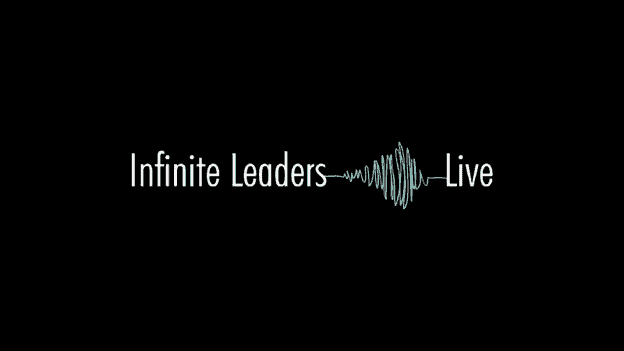
Leadership Lessons
This guest blog is the first of two parts and features the first 6 leadership lessons and gems of wisdom from Lewis and Alan. Tune back in next week to access the next 6.
‘Very great change starts from very small conversations, held by people that care.’
Margaret J Wheatley
Whether introverts, extroverts, data analysts or public speakers, we are hardwired for connection. The only way we can truly flourish in life is to connect with others.
Infinite Leaders: Live is a podcast that explores the experiences, habits and secrets of inspirational leaders, coaches, educators and entrepreneurs from around the world through the power of conversation.
Here we zoom in on 12 ‘Gems Of Wisdom’ — common themes of our conversations across the first 52 episodes, recorded in 52 weeks between June 2020 and June 2021.
Hopefully, you’ll find one or two small and valuable enough to slip into your pocket and help you along your leadership journey!

theinfinitelearners.com
-
Identify Seminal Moments
The forks in the road or the tough decisions along your journey, the chances you grabbed hold of or let slip through your fingers; everyone can identify seminal moments in their own lives. With the benefit of hindsight, you can likely recognise how that moment changed your life forever.
In episode 14 Steve Waide, (CEO of ‘Beyond The Physical’) told us about his own experience. Under the floorboards of a customer’s house, pulling his tools from his bag, he decided enough was enough. He was in a job he didn’t want to be in, and, at that moment, he knew his life needed to change direction.
He quit his job and re-entered full-time education to pursue his passion for educating young people.
Takeaway: Seminal moments are a vital aspect of the narrative of your life. Being aware of them can support you to make decisions that better align with who you are and where you want to be.

pexels.com
-
Roots and Wings
Identifying how your own ‘Habitus’ and ‘Field’ (Pierre Bourdieu, 1982–83) impacts your values and actions to help make sense of your lens on the world.
Where you are from, your childhood role models, the way you speak and where you see yourself in society will, whether you like it not, influence your decisions and behaviours throughout your life. Having clear, simple values and non-negotiable behaviours to follow will help clarify decision-making processes and enable you to make sense of initial responses to stressful situations.
Sports broadcaster Jake Humphrey shared his family’s mantra of ‘roots and wings’ in episode 16. The solid roots of family and identity will always be there, and these strong roots allowed Jake to spread his wings and attempt various jobs and opportunities on the journey to becoming a household name.
Takeaway: Never forget where you have come from; your past holds so many clues to help you understand who you are.
-
“Time invested in people is never, ever wasted time.”
In episode 3, Rebekah Russell (Head of Senior School, British International School of Riyadh) shared those words of advice to leaders at all levels.
Leadership is a people business; whether leading students or adults, it requires a range of interpersonal skills and often a heap of patience.
During episode 49, Mike Gilmour (Founding Principal of Knightsbridge House, Singapore) shared a story about volunteering in a prison in South Africa. Mike was trying to teach a group of inmates and finding it hard to build rapport.
Mike shared some of his frustrations with a prison officer and received a simple piece of advice; learn their names.
With everything taken away from them, including their liberty, the names of these prisoners were the only commodity they owned. With the simple act of learning names, the inmates felt seen, valued and heard, helping Mike make authentic and genuine connections.
Takeaway: Building relationships takes time, don’t underestimate the small stuff and keep investing your time and energy. It is well worth it.

pexels.com
-
The Context Drives The Narrative
Maybe you try to lose weight by selecting an online diet plan and by picking a workout plan you found in a magazine that promises to make you look as fit and toned as the cover model.
Many professionals within education are constantly on the lookout to magpie generic lesson plans or take someone else’s presentation and stutter through it as they try to pass it off as their own.
We often look for shortcuts and ready-made answers to our issues without considering the environment around us.
During episode 36, D’Arcy Lunn (Group Head of Sustainability & Global Citizenship, Dulwich Group of Schools) spoke about doing what we can to support global sustainability in context by focusing on ‘teaspoons of change’.
It is not realistic for everyone to switch to a plant-based diet, avoid single-use plastics altogether and eat only organic products — many of these behaviours interplay with factors outside our control.
Instead of picking up’ cookie cutter’ solutions and dropping them into your world or school, focus on what can transfer with adjustment to effectively fit into your context, considering people, resources and infrastructure.
Takeaway: Identify your ‘Teaspoons of Change’. How can you help to make a difference and positively influence those around you?
-
Know Your ‘Why.’
Without a purpose, we are travelling without reason or a road map. This can be quite liberating in the short term, but over time, we need to know why we are travelling or where we are travelling.
In episode 18, Matty Piper (former Professional Premier League Footballer) shared his story of self-destruction, from fan-favourite and rising star to rock bottom, attempting to end his own life whilst lying on his father’s grave.
Matty’s career had been cut short through injury, and lacking the only purpose he could identify with — success as a footballer — his life went into a downward spiral of drink and drugs. Following his ill-fated attempt to commit suicide, Matty went into rehab and found purpose in caring for a horse named Marron. Over the weeks and months that followed, Matty’s appreciation for caring and nurturing his new buddy helped him realise a new purpose in life.
Matty combined his two passions of football and caring for others to set up the FSD Academy, a place for young people to develop life skills through football, with the vision of ‘Empowering young people to achieve more in all aspects of life.
Takeaway: Find a purpose and spend some time every day doing something that aligns with it.
-
You Only Know What You Know
We often wrongly presume other people possess the same knowledge and see things in the same way as we do. How often do you have a discussion with a student that seems like they ‘get it’ only for the work handed in later to show that maybe they didn’t get it after all?
As adults, our level of knowledge might be greater than the average high school student, but it is shaped and influenced by previous experiences, environments and interactions.
In our conversation with Scott Barlow (High School Principal, UK), in episode 2, he shared the most memorable piece of leadership advice his Grandad had ever given him:
“Common sense is not very common”.
Adult human behaviour is unpredictable and largely out of our control, so it’s always advisable to plan for a range of outcomes and be prepared to see things from a different perspective.
Takeaway: What seems obvious to you may not be to others; have a flexible perspective.
Tune back in next week for gems 7-12.
—
About the Authors
Alan Dunstan and Lewis Keens are qualified PE teachers. They have worked in UK-based and British International Schools for a combined 33 years and pride themselves on supporting staff and students to reflect, innovate and improve.
Having grown up in working-class towns in South Yorkshire (UK), Alan and Lewis first met at Old Hall Comprehensive School in Rotherham. Alan was taking his first tentative steps into a teaching career whilst Lewis was completing his GCSEs!
After several years of teaching in the UK, their relationship went from teacher: student to colleagues and friends at British School Manila. There, they spent 7 years together leading PE and Sport whilst working with some fantastic colleagues on the evolution of PE.
Having written unique concept-based curriculums, developed inclusive sports programmes and led teams worldwide, Alan and Lewis decided to create ‘The Infinite Learners’; a brand that reflects their love of learning and the infinite vision they passionately work towards – to support people working in the education sector and beyond, to be better educators and be better humans.
Visit https://theinfinitelearners.com/ for more information.
Listen. Learn. Share


Responses